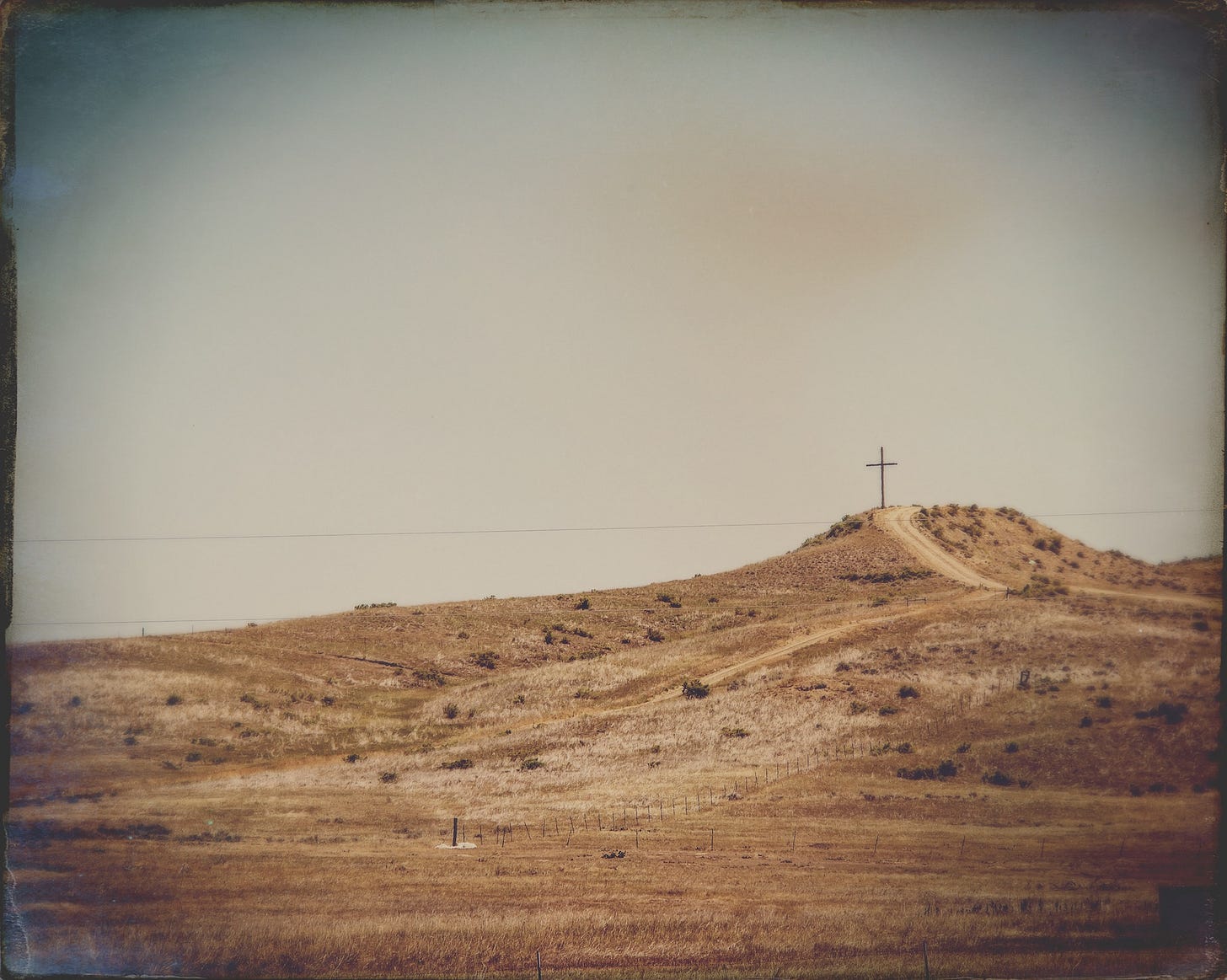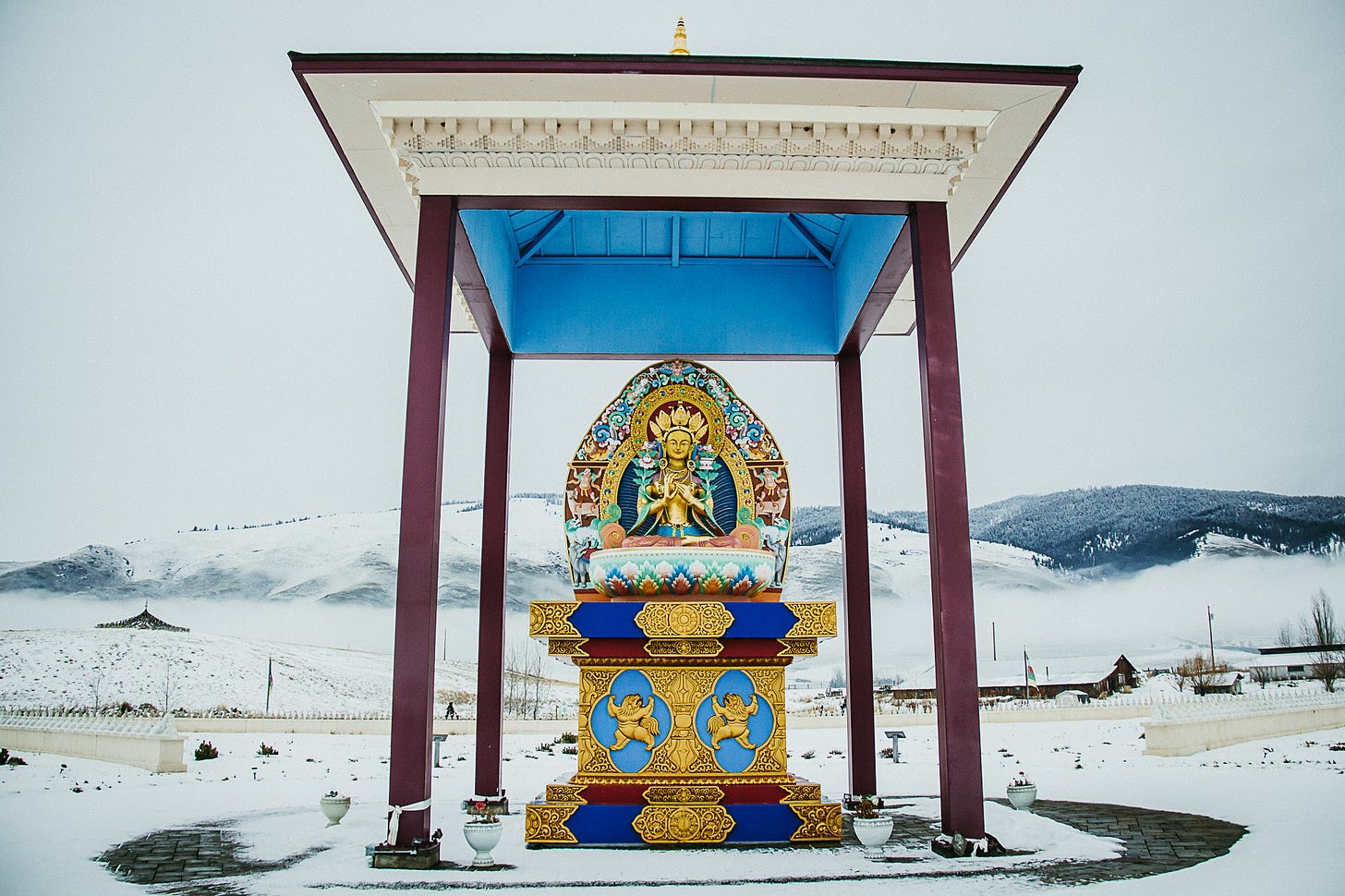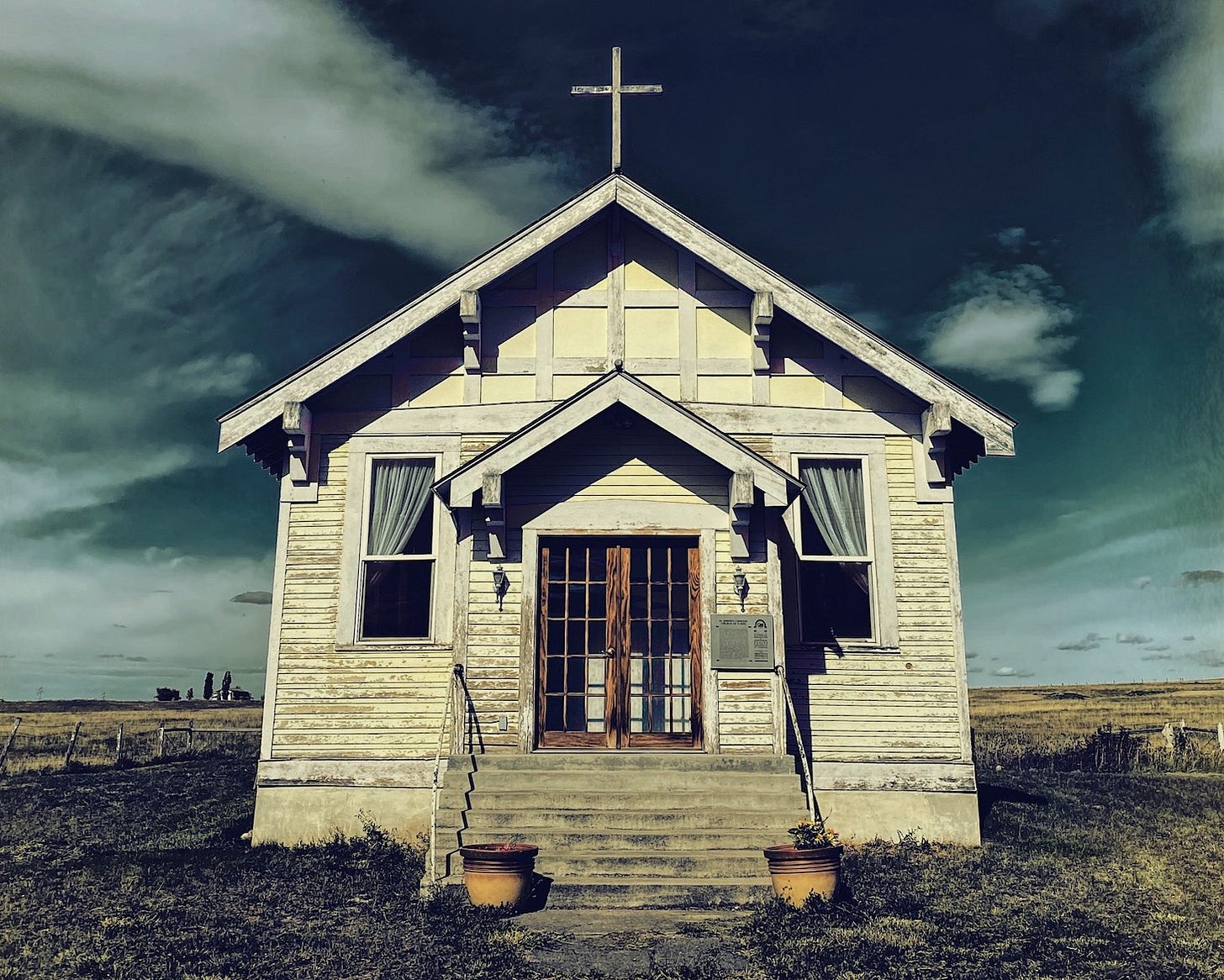The Point
Is that you don't think of Native people
Boozhoo! Aaniin! Welcome to An Irritable Métis. In this case, we have a particularly troubled, irritable version of the newsletter. It’s the kind I don’t necessarily care to post but sometimes it just won’t sleep off, meditate away, whatever. If you’ve been here awhile you know that’s how it goes. If not, well, let me point out that the unsubscribe option is in every email if you look at the fine print at the bottom (friends, I’m often angrily asked why that option isn’t provided, and it is, it always is). But I hope you choose to stick around. Finally, if you want to help keep a writer out of hard labor, well….
I was saved by a 5th grader. For seven classes straight, writing “I Believe” poems in the week preceding the Easter weekend, I was hearing children living on the reservation over and over again make reference to “God” and “Jesus.” It was breaking my heart.
This boy, though, told me he believed in “Native God.”
“Who is ‘Native God’?” I asked him.
“I don’t know,” the boy said. “God who isn’t some old white guy.”
I wanted to hug him.
Then I went out to my truck and struggled not to weep.
My feelings about Christianity swing back and forth like a pendulum. They have for my entire adult life, even before I started poking around in my Indigenous heritage. For example, it’s taken me years to get comfortable with the word “God,” if “comfortable” is even the right word. Even “prayer” is a word I struggle with. These are words that in English immediately call to mind the Christian faith because the American culture I grew up in is so steeped in it. But the words utterly lack the nuance and complexity of what the words actually mean. At least to me. I pray, for example, and if that word evokes the idea of kneeling in supplication to some God, well that couldn’t be farther from the truth. And the only way I can really square myself with the concept of the Christian God is to frame it as a reference to some Great Mystery and not the fiercely jealous personality that seethes and pouts between the covers of the bible.
On my better days I can recognize that most Christians are decent people just trying to make their way in the world as best they can. That they are as much victims of the actions of the institutions of “Church” and “Christianity” as everyone else is, and really don’t mean me or the people I care about any real harm.
But then that pendulum swings back the other way, and I take note of all evidence to the contrary, and I have to ask: or do they?
The argument Christians tend to use when justifying their faith is that it’s about Jesus, who wouldn’t really be down with the actions of his church, would he? When I am feeling angry and beleaguered I wonder how anyone, with the 2000+ years of evidence we have, can possibly make a case for that position. I love the idea of hippy Jesus as someone likely more willing to hang out with me than the vast majority of his followers, but that image is fading. What reason do I have to believe that Jesus is anything more than what he looks like everywhere I turn my gaze?
I don't know how it is in other parts of the world, but in North America, what seems the vast majority of Christians proselytize with images of machine guns and violence and white supremacy. The rest are largely silent in their condemnation. What other conclusion can I come to then about Christians and their unwillingness to rise up against the structures of their faith – if not in the name of this so-called “Jesus” they claim to follow, but at least then for the people the church has caused the most suffering to, i.e. non-white people – than that they are just too comfy in their deeply white supremacist-based status quo? American Christians just don’t see anyone else. I would welcome a reason to think otherwise.
There are outliers, yes. But in general, I need a white Christian to somehow convince me I am wrong about this. Someone help me swing my pendulum back to a more peaceful perception because these days, ever since I started thinking endlessly of Native languages and life under occupation, it’s been insurmountable.
The point is that between Columbus Day in October and Thanksgiving is really the only time most Americans think of Native people, but to be honest, I think of you all [white people] every day. — Winona LaDuke
Christianity as the bloody tip of the colonialist spear is painfully evident. The families of those children on the reservation didn’t convert to Christianity however many generations ago because it was a better faith, it was largely because they had to to survive. I understand Christian folklore the way we might talk about any other myths and stories, but no priests of Thor or Shiva or any other god or goddess shoved Native people – as recently as only two and three generations ago – into boarding schools. There they starved and beat and buried the broken bodies in unmarked graves all in the name of “civilizing” them. It was “illegal” for Native people in the U.S. to practice traditional spirituality until 1978. 1978! No Sun Dances. No Trade Dances. Even powwows had to be remade as some kind of pro-American celebration, which is why one sees so many around the 4th of July. All because of the various sects of this brutal cult of Christianity, which continues to flex racist, patriarchal muscle all across North America.
Is there anywhere on Earth that missionaries have gone that the people already there are any better off than they were in the first place? How many grandmothers chose not to teach their children their Native languages for fear of priests taking them from home and torturing it out of them?
At my worst, as I have been lately, when I see people clinging to their Christian faith, or justifying it, I see people who are either ignorant of, or don’t care about, what that faith has done to so many people in the name of this questionable Jesus character. It’s a feeling toward others that I don’t like to carry with me.
The morning of the same day the boy said he believed in a “Native God” I was in a classroom with a combined group of 6th, 7th, and 8th graders. Earlier that week I knew they had taken a field trip to visit two locations: The Garden of 1000 Buddhas in Arlee and the St. Ignatius Mission in St. Ignatius. This school I was visiting, Dixon, is about midway between the two locations and few miles west of it. Dixon is as beautiful and troubled a small reservation town as you might imagine, with the children to prove it. I adore them.
I was curious as to their experience on this field trip. Since they are older, I sometimes try and challenge them a little more with my questions and the result is often some wonderful conversations. So I asked them what they thought that, technically, the Buddhists really shouldn’t be there because the only reason the land was available for them to purchase was because it was stolen from Indians first. As for the mission, a popular tourist location because of the “holy images” painted on the ceiling, I asked if their guide had mentioned at all how it had been used as a boarding school. There were plenty of thoughtful expressions but not a lot of conversation.
“I know it’s hard to think about,” I finally said. “But it is worth thinking about, isn’t it? Or should we go back to talking about poems about butterflies and flowers and stuff?”
“Yes!” said a boy. He is younger and always has a lot to say. I asked him why. “Because that stuff makes me uncomfortable. And butterflies and flowers make me feel good.”
Butterflies and flowers make me feel good too. As do rivers and mountains and wildlife and sunrises and sunsets. These are things wherein, for me, Spirit can be found. As well as an absence of Jesus.
There is no Jesus in my world who doesn’t continue to threaten violence against people I care about. Not just Native people but queer people. People from other cultures. People who aren’t white. He is on bumper stickers and on signs outside of churches who advertise for right-wing politicians via yard signs in the median between the street and their parking lot. Politicians who advocate merciless antisocial programs and the hetero-normative whitewashing of not only history, but of the path into the future, all while, always while, waving a bible.
I sometimes wish I could just buy into a mainstream faith and take it all at face value and live contentedly within its precepts without question. Or the flipside, where I could take an atheistic view of the world and just write off all ideas of any Mystery at all, deny the presence of any whiff of ancestors in my life and accept that it’s just lights out forever when I die. I am incapable of either.
All of my struggles are rooted in spiritual struggle. Living and participating in this rapacious, destructive, consumptive culture is a spiritual struggle. What I eat and where it comes from is a spiritual struggle. How I interact with others in a culture that seems content with devouring itself is a spiritual struggle.
Everything is a spiritual struggle. I hate to think that this is the ultimate point of life, sorting it all out, but there has to be something better, doesn’t there?




I like the idea of a native God. I'm not much for spiritualism beyond loving the Earth and treating people well. To me that's why we're here. To take care of each other and leave the place better than we found it. That's holy to me these days.
Wow, really great message today. I am a 70 year old Presbyterian-Episcopalian-Buddhist-Jew- who was raised by a Presbyterian minister father. His belief was that we all found God in our own way and on our own path. While I remember seeing beatific pictures of Jesus as a child-my focus was always on the mystery of God(and rather ignoring the middle man). I have to confess that I have less than a handful of profound spiritual experience within the confines of a building (they have happened), many more in the forests, mountains, beaches that I have had the opportunity to visit.
I am so weary of the weaponization of Christianity and Jesus and don't "believe" in those professing to be Christian or their message/misogyny for a moment. It isn't lost on me that a country that was founded on the freedom of religion doesn't practice that in any way. I have profound respect for, as your 5th grader referred to as, "Native God". And while I may be in the minority, I think of Native People if not daily, at least weekly. I really appreciate your openness and willingness to share. Thank you.